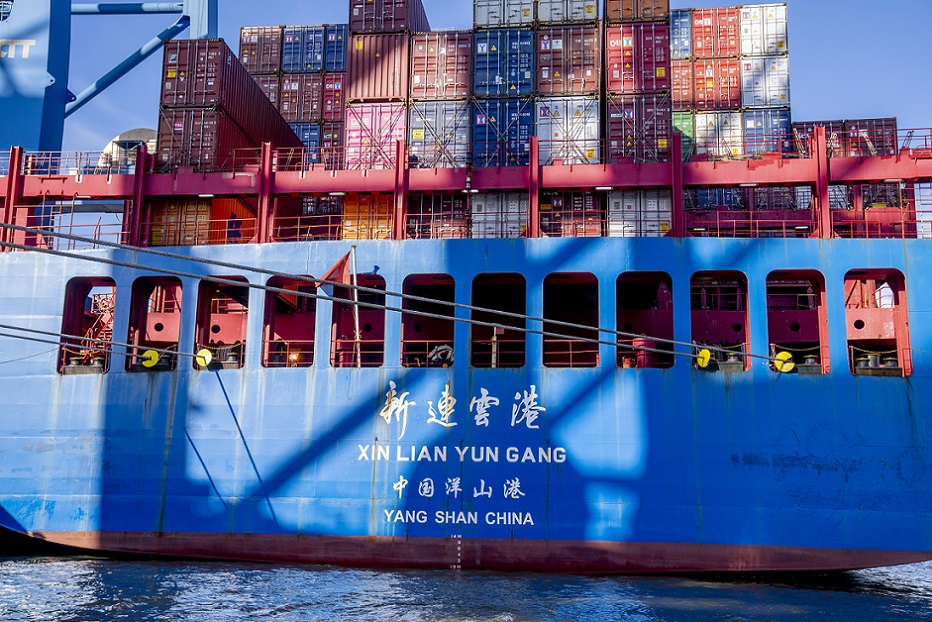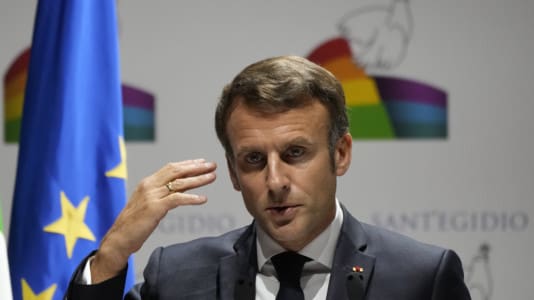Germany is on the verge of selling a stake in the port of Hamburg to China, while Italy under Giorgia Meloni appears to be promoting policies that put Italy first and encourage domestic production, writes Don Alphonso for the Die Welt daily.
Alphonso details how Chancellor Olaf Scholz’s decision to open up the port to Chinese ownership puts Germany once again in an unfavorable geopolitical situation. He asks what Germany will do, for instance, if China invades Taiwan, but at the “same time (China) had a say in how Germany’s most important port operates.” He then adds, “that’s the way it is with maritime access to a run-down vassal state like Germany.”
History has shown that countries acquiring infrastructure and ports in faraway lands is often a sign of superiority and power, as Europe showed in the colonial age when it seized resources, land, infrastructure, and the right to use ports in conquered countries. Often, these countries were forced to give up access to their ports through threat or use of arms.
[pp id=7378]
Alphonso points to Germany’s own history, writing that it was the German Empire forcing China into providing access to treaty ports that opened up the country to foreign trade.
“Against this background and 11 billion euros in development aid for China since the 1970s, it is only a question of belated justice if the Chinese, in turn, buy a port where they can land goods and earn money through them,” stated the Die Welt commentator.
Despite warnings from a range of countries, including the United States and other Western allies, Germany is moving forward with the deal.
However, some countries are trying to buck the trend of acceding to China’s growing dominance. The newly elected Gioria Meloni has made very critical statements about China, which is more in line with the majority opinion in Germany. Regarding a photo she took with an ambassador from Taiwan, she said that “she would always stand by those who believe in the values of freedom and democracy.”
Italy has long been close to China and was the only EU country to sign a five-year “New Silk Road” agreement with the Far East country, which Meloni has been critical of. China has kept a wary eye on Italy since her victory, especially due to a number of efforts she is making to refocus manufacturing in Italy and reduce foreign imports. Although it is unclear how much she will succeed in her efforts, even symbolic measures, such as her saying the Mnistry of Economics will implement a “Made In Italy” policy is enough to spark resentment from China, which Italy has long relied on for goods.
Alphonso goes further though, arguing that Germany’s left-wing, pro-environment parties have accepted Chinese dominance even at a cost to human rights and climate change simply because they, like other consumers, find it more convenient. The fact that the Greens and the Social Democrats (SPD) describe Meloni as “post-fascist” while at the same time they are allowing China, which features one-party rule, no democracy, and various human rights abuses, to purchase the port in Hamburg, shows the moral bankruptcy of these parties staffed with virtue signalers.
“Here, for example, you can see Canan Bayram, a member of the Bundestag for the Greens who has spoken against Meloni, with a Scott bike that has since been stolen – and Scott, like many other brands, now produces in factories in southern China,” writes Alphonso.
“It used to be different when I was young when the bikes came from Taiwan, and that was considered problematic because of the transport and the working conditions. But somehow, you got used to it. There is no longer any embarrassment when Greens show off aluminum clunkers from the Far East that do not correspond to German ideas of sustainability. The customers, including the Greens, buy it. And China wants to make delivery cheap according to its own ideas. If you do not want that, you must reconsider your consumer behavior, which is not easy after decades of restructuring away from industrial society.”
You know, in the 1970s the German bike market was still dominated by companies that manufactured everything in Germany, France, or Italy, right down to the last screw. Germany was the world leader in mopeds, which today can be considered the forerunners of e-bikes. Almost all major bicycle inventions came from England and France, and there was no getting around Italian companies when it came to racing bicycles.
Fifty years later, all that has largely disappeared; the large plants in Bielefeld and Nuremberg no longer exist. What is sold today under old German brand names is mostly bought in the Far East — from China or, now from countries that produce a little cheaper and with more exploitation.”
Alphonso warns that if German politicians do move away from China, they will end up being owned by the country. The results are similar to the conundrum being faced with Germany and Russia, with reliance on cheap Russian gas now costing Germany dearly. The only hope is in politicians at least willing to say they want to produce domestically and move away from reliance on exploitative and despotic countries from the East, even if they do provide the cheap goods that people across the West demand.






